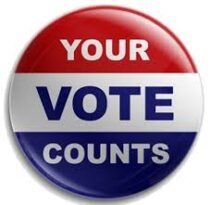
Big Win for Voters with Disabilities in Texas
Ensuring access to the ballot box for all voters is a fundamental part of a functioning democracy. But for voters with disabilities, that access is too often met with barriers, red tape, and policies that overlook the reality of their needs. A recent federal court decision shines a bright light on this issue, calling out the State of Texas for failing to uphold the rights of voters with disabilities. The ruling in La Unión del Pueblo Entero v. Abbott is a powerful reminder that accessibility is not optional—it’s a legal obligation.
The Case: A Closer Look at the Impact of S.B. 1
The case centered on Texas Senate Bill 1 (S.B. 1), a sweeping election law passed in 2021. Plaintiffs, including disability rights organizations like REV UP Texas and The Arc of Texas, challenged multiple provisions of the law under the Americans with Disabilities Act (ADA) and Section 504 of the Rehabilitation Act. The court examined these claims in detail, especially the law’s new identification requirements for mail voting and restrictions on voter assistance.
After a six-week bench trial, the judge agreed: S.B. 1 erects significant barriers for people with disabilities and violates federal law. Here are five key findings from the decision:
- Equal Access Denied: The court found that S.B. 1 denies voters with disabilities an equal opportunity to participate in and benefit from the voting process. Mail voting and assistance—used more often by voters with disabilities—are now harder to access due to strict ID-matching requirements and burdensome paperwork.
- Failure to Accommodate: Texas election officials have an affirmative duty to make voting accessible. The court criticized the state’s “know-nothing, do-nothing policy” when it comes to the ADA, noting that there are no statewide policies, training, or guidance on disability accommodations.
- Job Risks for Helping Voters: Election workers who offer accommodations risk losing their jobs or facing penalties under S.B. 1. The court concluded this fear discourages officials from assisting voters with disabilities—even when accommodations are required by law.
- Disproportionate Harm: The judge noted that the ID-matching requirement has led to higher mail ballot rejection rates for people with disabilities. Many voters don’t know which ID number is on file or face barriers in navigating confusing forms and processes.
- Lack of Training and Support: Officials across the state are unequipped to address accessibility. Some didn’t know what Section 504 was. Others had no ADA coordinators, no written policies, and no training on how to help voters with disabilities.
What Comes Next? A Call to Action
If this decision concerns you—and it should—it’s time to act. Contact your local Supervisor of Elections or local election office and ask what they’re doing to ensure accessibility for voters with disabilities. Are poll workers being trained on the ADA? Are reasonable modifications being offered? Are voters with disabilities being supported—not discouraged?
Change starts at the local level. Together, we can build an accessible, inclusive democracy where everyone’s voice counts.
📩 And if you need help starting the conversation, Disability Insights is here to support you with tools, training, and guidance.
